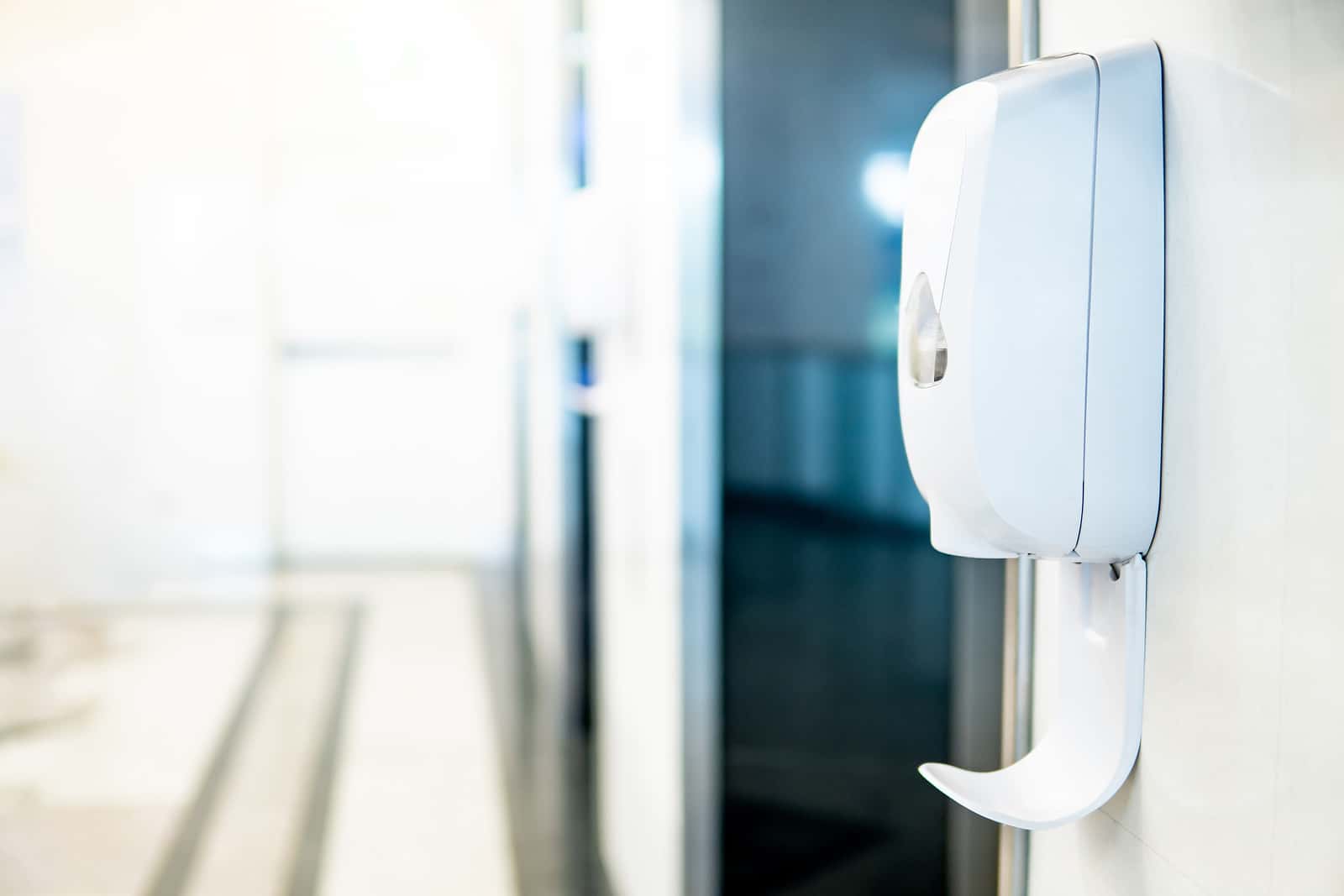
As people strive to avoid infection, whether from flu or COVID-19, they are paying more attention to cleaning their hands. As a result, they may be wondering whether using hand sanitizer is better. How well does washing their hands with old-fashioned soap and water work? One reader started thinking about this some time ago.
Is Hand Sanitizer Better, or Simply More Convenient?
Q. When I’ve asked health professionals to wash their hands before touching me, most of the time they say they have used the hand sanitizer outside the door, then opened the door. It is sad there are no longer sinks with soap dispensers and water in the exam rooms to save costs and time while putting us patients at risk.
A. We agree that soap and water might be better than hand sanitizer, especially if someone has to touch the (potentially contaminated) doorknob after using the sanitizer. Alcohol-based sanitizers seem to work against many bacteria but are less effective against viruses (Journal of Food Protection, June 2016). Consequently, if you are worried about norovirus or influenza, you’ll likely do better with careful hand-washing. Make sure to scrub for at least 20 seconds–long enough to sing “Happy Birthday” twice through. Here is a link with a graphic showing the steps.
Using Soap and Water Plus Hand Sanitizer:
Recent research on the drug-resistant fungus Candida auris suggests that first washing with soap and water, drying the hands, then applying alcohol-based gel works to remove the microbe (Journal of Infection and Public Health, Jan. 28, 2020). In summary, the most important step is cleaning the hands on a regular basis, whether one uses soap and water or believes hand sanitizer better and uses that.
Things that we handle frequently, such as our mobile phones, may also become contaminated and require disinfection (Journal of Preventive Medicine and Hygiene, Dec. 20, 2019). That, however, will need an entirely different technology to be effective.
Hand-Washing or Hand Sanitizer in the Hospital:
Another reader a few years ago related this experience:
Q. I was in the hospital for serious injuries resulting from an automobile accident. They included a crushed tibia that was a compound fracture. As you can imagine, there was concern about bone infection.
I also had broken ribs and a lung contusion. It was cold and flu season, and I really didn’t want to be sneezing or coughing, so I always asked about hand washing.
One nurse said,
“I haven’t been anywhere except the nurses’ station.”
I asked him if he had touched anything there and he responded,
“Yes, but I haven’t been in another patient’s room.”
I politely asked him to humor me and wash his hands. He did, but he clearly didn’t think it was necessary. I was appalled, since that means I would be exposed to microbes from everyone on the ward.
There was a hand sanitizer dispenser in my room. Would that be as effective as plain old hand washing?
A. Alcohol-based hand sanitizers can be helpful, but they are not an adequate substitute for conscientious hand washing with soap and water. Studies have shown that just rubbing hands with an alcohol gel does not eliminate C. diff., a bacteria that causes serious diarrhea (Infection Control and Hospital Epidemiology, Oct. 2009). This is by no means the end of the story on C. diff. Clinicians have reported that a great deal more research is needed on how to prevent the spread of this dangerous disease (Current Infectious Disease Reports, June 29, 2018).
A study from the University of Virginia found that alcohol-based hand sanitizers are not very effective at reducing cold and flu infections. That might be because airborne viruses are transmitted through coughs and sneezes. Nevertheless, hand washing with soap and water remains the first line of defense against infection, both in hospitals and at home.
Citations
- Foddai AC et al, "Efficacy of instant hand sanitizers against foodborne pathogens compared with hand washing with soap and water in food preparation settings: A systematic review." Journal of Food Protection, June 2016. DOI: 10.4315/0362-028X.JFP-15-492
- Fu L et al, "Different efficacies of common disinfection methods against candida auris and other candida species." Journal of Infection and Public Health, Jan. 28, 2020. DOI: 10.1016/j.jiph.2020.01.008
- Martina PF et al, "Dangerous passengers: Multidrug-resistant bacteria on hands and mobile phones." Journal of Preventive Medicine and Hygiene, Dec. 20, 2019. DOI: 10.15167/2421-4248/jpmh2019.60.4.1283
- Oughton MT et al, "Hand hygiene with soap and water is superior to alcohol rub and antiseptic wipes for removal of Clostridium difficile." Infection Control and Hospital Epidemiology, Oct. 2009.
- Rubin ZA et al, "Primary prevention of Clostridium difficile-associated diarrhea: Current controversies and future tools." Current Infectious Disease Reports, June 29, 2018. DOI: 10.1007/s11908-018-0639-4

